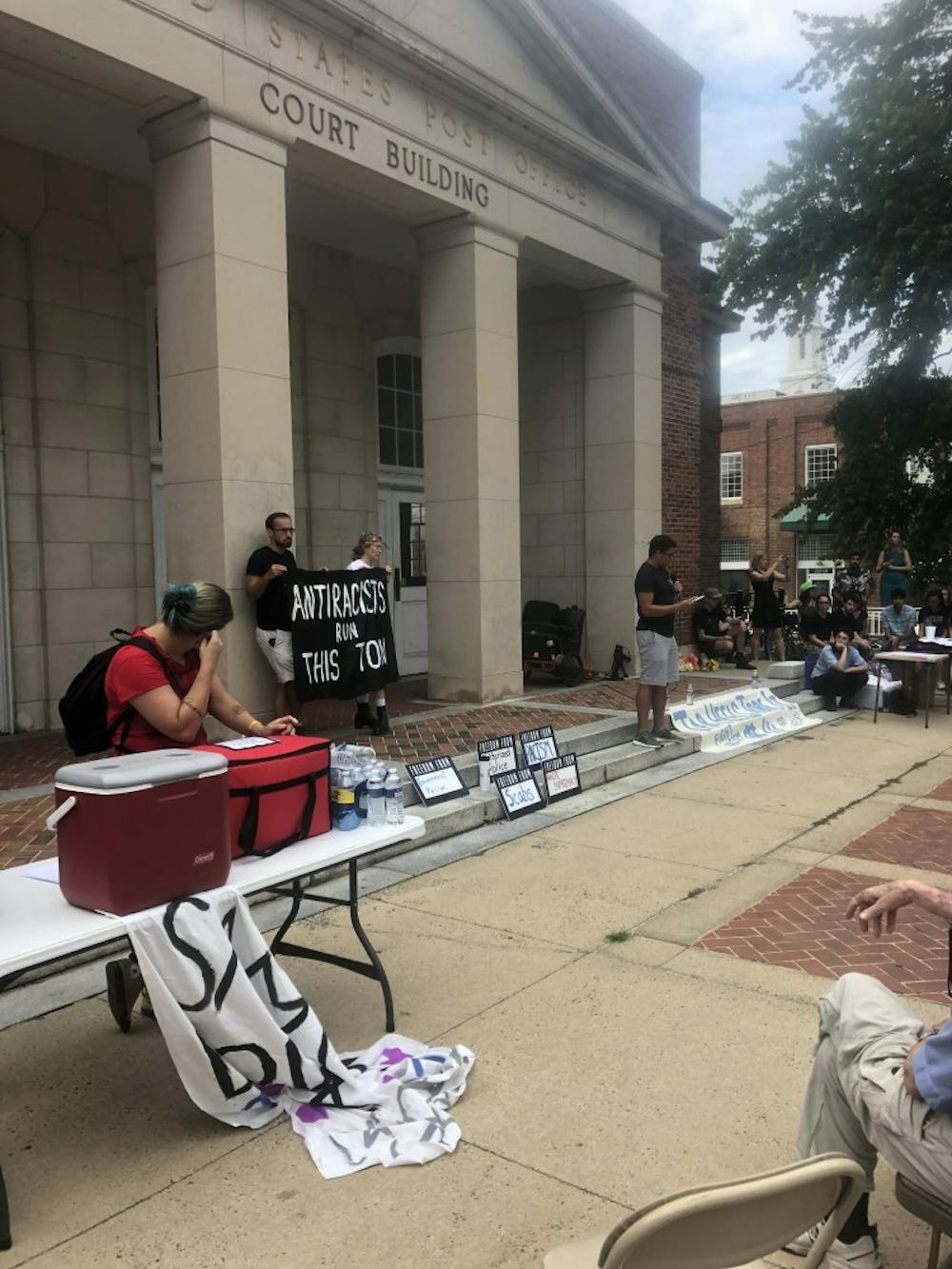Long before Silent Sam was built, the land it stood on was home to the Native American tribes that inhabited North Carolina.
Demonstrators gathered on Tuesday to celebrate the one-year anniversary of Silent Sam's toppling and protest what they perceive as the continued influence of racism on UNC's campus. At the beginning of the event, senior Jamison Lowery gave a land acknowledgment, a way of recognizing the indigenous people who once lived in the area.
Lowery is president of the Carolina Indian Circle, an organization focused on creating a community for Native American students. Lowery, a member of the Lumbee Tribe, gave the acknowledgment at the Peace and Justice Plaza.
For Lowery, a land acknowledgement is a way for Native Americans to feel seen on UNC's campus.
"There is a level of action behind land acknowledgements," Lowery said, "Because the first step is making sure you put it out there to talk about the history and give voice to Native students on campus."
This is not the first time that a land acknowledgment has been given during a UNC demonstration. Lowery explained that this practice is a way of recognizing the Native people who once inhabited the land that UNC was built on.
“We're not trying to basically say, 'Oh, this was Native land. We'd like to take it back or this and that,'” Lowery said. “It's simply an acknowledgment to the longstanding history that the land itself has had with indigenous people who were, traditionally, the people who were stewards over the land.”
Lowery said he gave his speech at the demonstration to give more context to the history of UNC and remind everybody of the school’s Native population.
“Having a land acknowledgement and presenting this other side to the story, we're trying to make sure that people understand that native people are still here, and just to acknowledge the long history that has gone on with the place that we currently reside on," Lowery said.




